Academic Partners
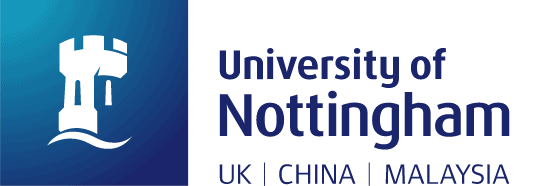
University of Nottingham
“Percepio’s Tracealyzer was instrumental in developing the software for the car’s ECU and Battery management system. When we moved to FreeRTOS this year, Tracealyzer gave us a great insight into our software, allowing us to monitor the CPU load, task duration and maximum response time, and identify and fix bugs which would otherwise have gone undetected. Tracealyzer has been our eyes throughout and has made developing the software a joy. We are 100% sure we wouldn’t have been able to achieve what we did without it.”

SETREM
“It is very important to our students to be able to see things happening. RTOSes are not a blackbox anymore with Tracealyzer!”
Vinícius da Silveira Serafim, Professor embedded systems, SETREM, Três de Maio, Brazil

Schulich School of Engineering, University of Calgary
The Canadian Solar Car project is part of the Schulich School of Engineering at the University of Calgary. Their current car Elysia is on its fifth year of refinement and Percepio supports the student teams that will work on it with free Tracealyzer licenses during the next two years.
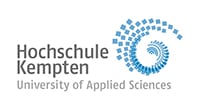
Hochschule Kempten
“I currently teach a number of embedded system modules in different bachelor and master degree programs. Using Tracealyzer in our labs will allow us to teach the fundamental RTOS concepts (scheduling, resource sharing, deadlocks and constraint analysis) in an effective manner that supports our students in their learning.”
Prof. Dr. Daniel Güldenring, Faculty of Electrical Engineering, University of Applied Sciences, Kempten, Germany
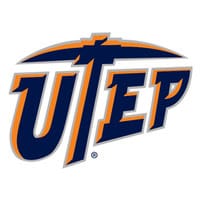
University of Texas El Paso
“I have been in charge of teaching the Microprocessors II for the past two semesters and most likely will also be in charge of this class this fall. We use FreeRTOS in the labs associated with this course, and we would like to use Tracealyzer as part of the instruction. I also have a PhD student doing research on the use of FreeRTOS in a Cubesat satellite platform. We will need to analyze the performance of FreeRTOS and I think this tool would be of great help to us.”
Hector Erives, Associate Professor Electrical and Computer Engineering, University of Texas El Paso, USA
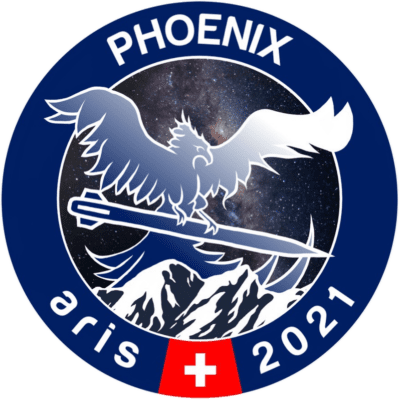
Phoenix ARIS
“The project PHOENIX is the first Guided Recovery project of ARIS, the academic space exploration initiative in Switzerland. The goal of our project is to develop a system that will autonomously guide a returning rocket to a predefined location and ensure a safe landing. This will be realized by self-developed control systems which enable the rocket to react to disturbances. Our team consists of mechanical and electrical engineer from ETH in Zürich as well as two system engineers from the Zurich University of Applied Sciences.
We were made aware of Tracealyzer through Project Euler, a previous rocket project within ARIS who had used the software.”
Pascal Sutter, Phoenix project lead at ARIS, Zürich, Switzerland
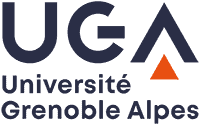
Université Grenoble Alpes
“At bachelor level we are running our RTOS courses on STM32-M4 platforms, using STM32CubeIDE and FreeRTOS. Currently, students access active task information in real time through a small electronic DAC instrumentation we designed, using an oscilloscope as display. We would like to equip our students with Tracealyzer instead, as the software provides more kernel information, like state of kernel objects and API calls, in for example the Event Log and the Trace View. ”
Vincent Grennerat, Associate Professor, Université Grenoble Alpes, France

Polytechnic of Leiria
“We plan to use Tracealyzer in the course Computational Embedded Systems in order to perform trace visualization and analysis. This tool will help our students acquire relevant knowledge in of runtime behavior assessment, which is essential for embedded software developers.
This course complements the training of students in the field of microprocessor architecture and operating systems, and it provides the student with skills in Real-Time Operating Systems as applied in Embedded Systems. It also serves to support the study of topics related to Internet of Things.”
Luis Conde Bento, Assistant Professor, Polytechnic of Leiria, Portugal
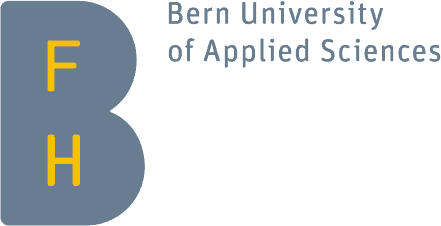
Bern University of Applied Sciences
“In our Embedded Systems education program and various student projects, both bachelor and master programs, we use ThreadX on SMT32 platforms for development. Tracealyzer helps the students understand how the RTOS schedules threads, and identify design bottlenecks.”
Andreas Habegger, Professor, Department of Engineering and Information Technology, Bern University of Applied Sciences, Switzerland
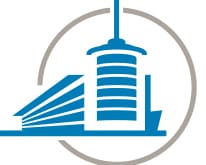
University of Applied Sciences and Arts of Western Switzerland
“I teach a course in Computer Engineering, in which applications based on simple schedulers up to such based on RTOS are discussed and realized with practical examples. For the practical part we are now also using FreeRTOS on a TM4C1294 for which we want to use Tracealyzer for visualization, and so help students to better understand the concepts of scheduling, interprocess communication, resource sharing, stack size definition and so on.”
Roland Scherwey, Professor, University of Applied Sciences and Arts of Western Switzerland

Fachhochsschule Kiel
“In our module Embedded Systems, we are using ThreadX on Renesas S7G2 processors and e2studio for the development. Tracealyzer would greatly help to support the students learning to understand how the RTOS schedules threads.”
Dr. Ralf Patz, Professor, Kommunikationstechnik und Embedded Systems, Fachhochsschule Kiel, Germany
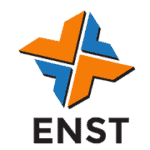
ENST – National School of Technology
“We teach a course in Real-Time Computing to Master students in Embedded Systems programming, and to students in the electrical engineering program of ENST. We use FreeRTOS on STM32F446 cards to illustrate in a practical way how an RTOS works, and to better understand the concepts of real-time multitasking systems and resource sharing.
We would be very grateful to be able to use Tracealyzer both in our courses and in the master projects.”
BELLOULA Abdelmalek, Embedded System Researcher and Teacher, ENST – National School of Technology, Algiers, Algeria

Haute École en Hainaut
“Tracealyzer is a very useful tool to show students how FreeRTOS schedules various tasks and how small changes in their code can completely change the behaviour of the operating system. Students can now compare the real execution of tasks with what they expected to happen.”
Gaëtan Paulet, Research Assistant in Electronics, Haute École en Hainaut, Belgium

San Diego State University
“We work on wearable and ambient sensors using ARM-based processors. We will use Tracealyzer to understand the operating system behavior better.”
Yusuf Ozturk, Professor of Computer Engineering, San Diego State University, USA
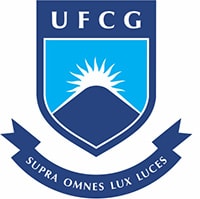
Universidade Federal de Campina Grande
“I am working on my thesis that consists of development of an AGV (Automatic Guided Vehicle). Currently I have a bare-metal embedded system, without RTOS, but I am planning to incorporate FreeRTOS into the system and I would like to use Tracealyzer for monitoring RTOS behaviour like task switches, the memory heap, CPU load, and other characteristics.”
Christian Charles Dias, Masters student, Universidade Federal de Campina Grande (UFCG), Brazil
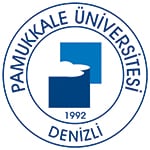
Pamukkale University
“At Pamukkale University, Department of Electrical Electronics Engineering, we are building electrical vehicles with ST microcontrollers. To use ST’s developer tool STMCube32IDE effectively, a trace analysis tool would be very helpful. Once we have a working trace solution for the vehicle projet, we will look at adding Tracealyzer for other projects within our department.”
Akif DEMİRÇALI, Research Assistant, Faculty of Engineering, Pamukkale University, Denizli, Turkey

Hogeschool PXL
“I would like to show students more in-depth scheduling and timing behavior of their FreeRTOS applications on our Xilinx Zynq-based embedded systems. They will debug their own lab projects with Percepio Tracealyzer.”
Vincent Claes, lecturer, Hogeschool PXL, Belgium
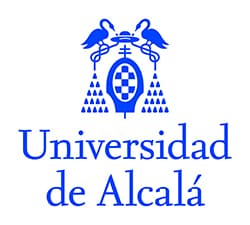
University of Alcalá
“I would like to use Tracelayzer in the course Real-Time Electronic Systems, which is part of our University Master exam in Electronic Engineering. We are using FreeRTOS on STM32F411 boards to illustrate advanced concepts of hard real-time systems. It would be great if students could work with Tracealyzer to fully understand the content presented in the course.”
José L. Martín-Sánchez, Associate Professor, Department of Electronics, University of Alcalá, Spain
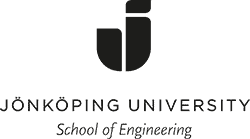
Jonkoping School of Engineering
“We would be very grateful to be able to use Tracealyzer in our courses in Real Time Operating Systems, and also to use it in our CDIO-projects in embedded systems. We use STM32 boards together with Atollic True Studio, and we intend to use Tracealyzer to make our students aware of the concurrent behavior of an RTOS.”
Anna-Karin Carstensen, Senior lecturer, Department of Computer Science and Informatics, Jonkoping School of Engineering, Sweden
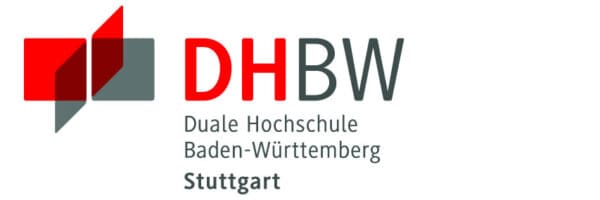
Duale Hochschule Baden-Württemberg
“Formula Student is an international car design competition for students in which our school, DHBW Engineering, has established established itself as one of the top ten teams worldwide. The task is to design and manufacture an electrically driven racing car in less than 12 months to compete in Formula Student Electric against other teams. In this season more than 100 enthusiastic students are involved in our team “eSleek20”. We are developing an STM32-based electronic control unit utilizing FreeRTOS to simultaneously control the inverter modules for our four electric motors. Tracealyzer helps us analyze timing, trace kernel calls and improve the performance of this safety critical system. It thus enables us to increase our pace of development.”
Johannes Hügel, DHBW Engineering team, Duale Hochschule Baden-Württemberg Stuttgart, Germany

Polytech Nice Sophia
“I teach a class on real-time operating systems based on FreeRTOS, using Xilinx Zedboard, the FreeRTOS Windows port and an NXP board with MCUXpresso IDE. We have also began work on an IoT project using ESP32 SoCs from Espressif Systems. Tracealyzer is really an effective tool for debugging, and it is very useful for the students in order to better understand concepts like scheduling, resource sharing, interrupts and so on.”
Fabrice Muller, Associate Professor, Polytech Nice Sophia, France
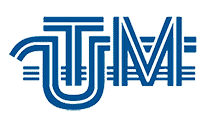
Technical University of Moldova
“We are working on a university project to develop a small educational CubeSat satellite. The on-board computer software is based on the FreeRTOS kernel. Due to the fact that the software is pretty complex, and that our goal is to achieve a high level of reliability, we want to use Tracealyzer for RTOS-aware debugging. That way we can obtain full insight into software execution and spot bugs early that may affect reliability.”
Alexei Martiniuc, Masters student and researcher, National Center of Space Technologies, Technical University of Moldova

Université de Paris
“The nanosatellite mission IGOSat is an education-focused project between three laboratories at the Université de Paris: AIM (Astrophysique et Interactions Multi-Echelles), APC (AstroParticule et Cosmologie) and IPGP (Institut de Physique du Globe de Paris). The aim is to train young students, and for this purpose we develop as many components of the satellite system inhouse as we can. The project commenced in 2013 and is set to develop a scientific 3U CubeSat, to be launched the end of 2020. The satellite will carry two payloads, one to study the ionosphere and one to study the radiation belt.
We develop the embedded flight software with the help of several interns (students) and we want to use Tracealyzer to do a timing analysis of the software, which is based on FreeRTOS and running on an ARM target (AT91SAM9G20 MCU), in order to validate the design.”
Colin González, Embedded Software Engineer, APC Laboratory, Université de Paris

Bergische Universität Wuppertal
“I want to use Tracealyzer in my course ‘Microcomputer for actuators and drives’. It is a master course in the electrical engineering program where we use FreeRTOS as operating system, running on Texas Instruments microcontrollers.”
Dr.-Ing. Ralf Wegener, Lehrstuhl für Elektrische Maschinen und Antriebes, Bergische Universität Wuppertal, Germany

Beijing University of Post and Telecommunications
“I am currently working on an IoT project where edge devices need to transfer data to a central base station. We use STM32 microprocessors and J-Link debug probes, and we are seeing timing problems during our tests but have so far been unable to locate the specific cause of the error. We need a tool such as Tracealyzer to determine what kind of error(s) we have that cause our software to exit.”
Binbin Shi, Researcher at Institute of Information Photonics and Optical Communications, Beijing University of Post and Telecommunications

University of New South Wales in Canberra
“Our task is to develop on-board computers for UNSW Canberra Space satellites. We are using the SoftConsole IDE and FreeRTOS running on Arm Cortex M3. Using Tracealyzer would help us fine tune our mission critical software design and testing. We would want to understand how our tasks are impacting the processor load and also have a better understanding of what traps get unnoticed during our testing.”
Arvind Ramana, Embedded Systems Team Lead for Space Engineering, University of New South Wales in Canberra, Australia
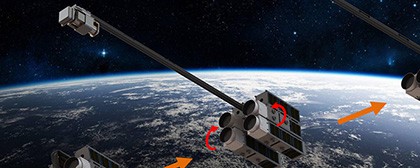
Aerospace Department, Caltech
“At the Space Structures Lab of Caltech, we are currently working on a space telescope project called AAReST. It’s a proof-of-concept that demonstrates the assembly of free flying mirrors in space in order to assemble a space telescope. It’s also a project that enables students to have a first experience in spacecraft development, as it has been developed year after year by classes of undergraduates and graduate students.
We are writing our own flight software using FreeRTOS on an EFM32. We need to be able to visualize each of our tasks’ specs (% of CPU load, time table, events, etc …) and more generally how our software behaves. I tried the free version of Tracealyzer and it’s simply the exact solution we need for our project.”
Charles Sommer, Assistant Researcher Aerospace Department, Caltech, USA
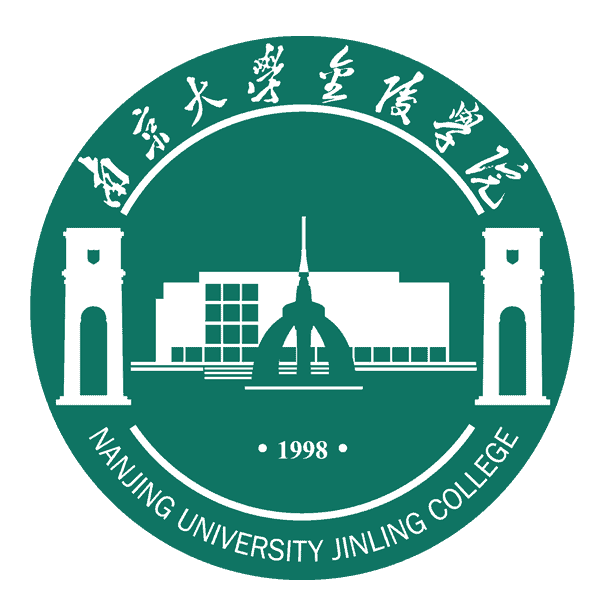
Nanjing University Jinling College
”We have an undergraduate course titled RTOS with about 60 students, where we will use FreeRTOS during classes and we’re planning to use Tracealyzer as the performance analysis tool throughout the course.”
James Ho, Professor, Nanjing University Jinling College, China

University of Idaho
”Four years ago when I took over teaching our advanced microcontrollers, one of the first things I did was to add code profiling and system debug using Tracealyzer with FreeRTOS. Students have found the visualization features extremely helpful for understanding their system’s behavior and performance. Not only has this improved the quality of their project submissions, but Tracealyzer also gives them experience with a professional development tool. We are very grateful for Percepio’s support.”
Jim Frenzel, Associate Professor, University of Idaho
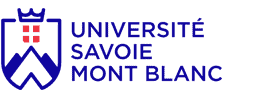
Université Savoie Mont Blanc
”For ten years, we have been working on TI TMS320C5416 with DSP/BIOS RTOS. The lecture has been renewed entirely this summer and we bought STM32 Cortex M architecture (M7 for DSP programming, and M3 as a general purpose µC). We are using TrueStudio (Atollic) and we would like to add Tracealyzer to the mix. Obviously, Tracealyzer would give us a great understanding of what is happening behind the FreeRTOS scheduling.”
Sylvain Montagny, Professor, Université Savoie Mont Blanc
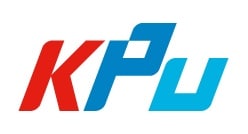
Korea Polytechnical University
”In our lectures in ‘Communication for Control’, we use FreeRTOS with Keil µVision and Mbed. We would like to be able to trace the communications protocol and sequences of messages with Tracealyzer and to visualize the result for our students.”
Moon-Suk Jang, Research Assistant, Korea Polytechnical University

University of Science and Technology of China
”We work with multimedia, and with telematics for vehicles, using both µC/OS-III and FreeRTOS. Tracealyzer will mostly be utilized to confirm that timing is correct and safe for all threads.”
Zhang Gaowei, Associate professor, University of Science and Technology of China

University of Caen
”One of the courses at our department deals with embedded programming with hard real-time constraints. We used a demo version of Tracealyzer to illustrate concepts like scheduling, resource sharing, and IRQ synchronisation. It will be great once we deploy the full featured version in our lab to show our students how a real, professional tool works.”
DUFAY Basile, researcher Mechatronics and Embedded Systems, University of Caen, Normandy, France
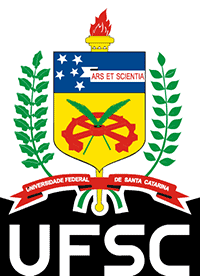
Federal University of Santa Catarina
”I’m working in a project named ProVant, whose objective is autonomous UAV design, and we are using FreeRTOS on STM32F4 hardware. In order to verify the reliability of our embedded software, we are studying its behavior. For this purpose, we are looking for the Tracealyzer tool to better understand the real-time features and behavior. Examples include whether the priorities of the threads are being respected, and if preemptions is happening. This kind of analysis will help us with the verification.”
Henrique Amaral Misson, Graduate program in Automation and Systems Engineering, Federal University of Santa Catarina (UFSC), Brazil

Changzhou College of Information Technology
”I’m teaching a course in Embedded Operating Systems and have elected to use FreeRTOS in my lessons. Being able to analyze RTOS behavior with Tracealyzer is essential, as its visualization and graphics give students direct insight into how their applications are executing.”
Yang Kai, lecturer, Changzhou College of Information Technology (CCIT), China
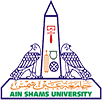
Ain Shams University
”The class I’m teaching uses FreeRTOS, Atmel Studio and Atmel AVR MCUs to study memory protection in an RTOS. We need Tracealyzer to capture and analyze what is happening at the RTOS level.”
Omar Elnakib, Teaching Assistant, Ain Shams University, Cairo, Egypt
Konyang University in Nonsan City
”I teach a class on embedded software development with FreeRTOS, mainly targeting mobile systems, and our students must be able to verify task execution and other details in FreeRTOS. For this, we need Tracealyzer.”
Kwon Taekwon, Professor, Konyang University in Nonsan City, Republic of Korea

Swissloop, a part of ETH Zürich
”Swissloop is a student-led initiative contributing to the research on and advancement of the Hyperloop technology and its application in the real world. Bachelor students apply their theoretical knowledge in practice.
We are building all our real-time embedded systems on top of FreeRTOS running on STM32H7 and L5 microcontrollers. This includes the vehicle control unit, the power electronics and control units as well as the battery management systems.
All software and hardware is developed in-house by the students, and we believe that Tracealyzer would greatly benefit our development process by helping us identify and solve problems more efficiently. Specifically, we hope to use Tracealyzer to address data synchronization issues, task starvation, and timing violations.”
Philip Wiese, Focus Coach, Swissloop, Dübendorf, Switzerland

WARR, a part of TUM in Munich
”WARR is a student not-for-profit organisation at the Technical University of Munich that develops rovers, satellites, and rockets. One of our experiments was recently launched on a SpaceX Falcon 9 to the ISS, where it will research aging of Alzheimer cells in microgravity. Our Satellite branch currently has two satellites in space, and the Rocketry branch, of which I am a member, will launch a bi-liquid and a hybrid propellant rocket this year.
We develop our own flight computers, based on the STM32 processor family, for these rockets and we use FreeRTOS as our OS. As you can imagine, the software on a flying rocket is critical in every regard, from the success of the mission to safety of people and goods. Tracealyzer will therefore be extremely helpful for analysing our flight computer firmware and verifying critical aspects of our code.”
Joshua Batmaz, Avionics Firmware lead, WARR, Munich, Germany
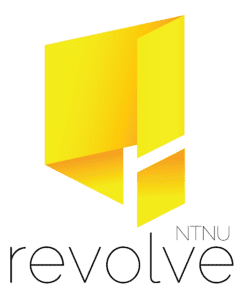
NTNU in Trondheim, Norway
Percepio is a long-time sponsoring partner of the Revolve NTNU team in Trondheim. Revolve students build electric race cars and compete in the European Formula Student tour each year. They are currently building their eleventh car for the 2024 competitions and we are happy to help the team with free Tracealyzer licenses.

Karlsruhe Institute of Technology
“Our goal is to compete in an annual competition as well as researching cooperative driving methods. We are currently transitioning from the Robot Operating System (ROS) to ROS2 as our underlying software framework. In this context we will also migrate the firmware on our STM32s to FreeRTOS and micro-ROS.
One of our boards will rely heavily on FreeRTOS multithreading, running around 20 threads simultaneously while having real-time requirements. Tracealyzer could potentially solve upcoming issues with our execution management and be helpful when debugging.”
Yannik Süssmuth, student at Karlsruhe Institute of Technology

FH Joanneum
“We are the leading Formula Student Team of Austria, and we intend to use Tracealyzer to optimize our self-developed Battery Management System.”
Kevin Beichler, student at FH Joanneum

NTNU in Trondheim, Norway
“We are a student rocketry team at NTNU that gives students hands-on experience with engineering projects. Members get opportunities that they would not have had as a regular student, going beyond theory and gaining experiences that strengthens them as engineers.”
Simen Bjerkestrand, student at NTNU
Gator Motorsports, University of Florida
“An important part of our work is to debug Zephyr-based applications running on NXP IMX.RT micro controllers. These micro controllers run complex data acquisition pipelines streaming data over Ethernet and are thus very hard to debug as so many thing are going on. Tracealyzer will allow us to better understand what’s happening under the hood and debug more efficiently.”
Jason Beckmann, Firmware Lead, Student
Our Academic Partners Include:
- Brno University of Technology, Czech Republic
- Brown University, USA
- Budapest University of Technology and Economics, Hungary
- Ecole Nationale d’Ingénieurs de Brest, France
- ETS Montreal, Canada
- Federal University of Technology, Minna, Nigeria
- Fontys University of Applied Sciences, Eindhoven, the Netherlands
- Future University in Egypt
- Gdansk University of Technology, Poland
- HES-SO Valais-Wallis, Switzerland
- Hochschule Munchen, Germany
- Hochschule Pforzheim, Germany
- Hogeschool van Arnhem en Nijmegen, the Netherlands
- HTWG Konstanz, Germany
- Lucerne University of Applied Sciences and Arts, Switzerland
- Minnesota State University at Mankato, USA
- Mullard Space Science Laboratory, University College London, UK
- National Authority for Remote Sensing and Space Sciences, Egypt
- National University of Singapore
- Norwegian University for Science and Technology (NTNU), Norway
- Simon Fraser University, Canada
- Southeast University, Jiangsu, China
- Szechenyi István University, Hungary
- T3LAB/University of Bologna, Italy
- Technical University of Chemnitz, Germany
- Technical University of Lodz, Poland
- University in Eindhoven, Netherlands
- University of Applied Sciences Amberg-Weiden, Germany
- University of Applied Sciences, Darmstadt, Germany
- University of Bologna, Italy
- University of Buenos Aires, Argentina
- University of Canterbury, New Zealand
- University of Cooperative Education Eisenach, Germany
- University of Heidelberg at Mannheim, Germany
- University of Innsbruck, Austria
- University of Kaiserslautern, Germany
- University of Moratuwa, Sri Lanka
- University of Nantes, France
- University of New Mexico, USA
- University of Pernambuco, Brazil
- University of Queensland, Australia
- University of Siegen, Germany
- University of Timisoara, Romania
- University of Washington, USA
- Warsaw University of Technology, Poland
Percepio Partners
Technology Partners
RTOS
Partners
Training
Partners
Distributor
Partnerships
Academic
Partners
Our Products
Percepio® is the leading provider of visual trace diagnostics for embedded and IoT software systems in development and in the field.
TRACEALYZER
Percepio® Tracealyzer combines software tracing with powerful visualizations, allowing users to spot and analyze issues in software recordings during development and testing.
DEVALERT
Percepio® DevAlert is a cloud-connected monitoring framework for OEMs developing RTOS device software, providing instant insight on bugs and anomalies.

